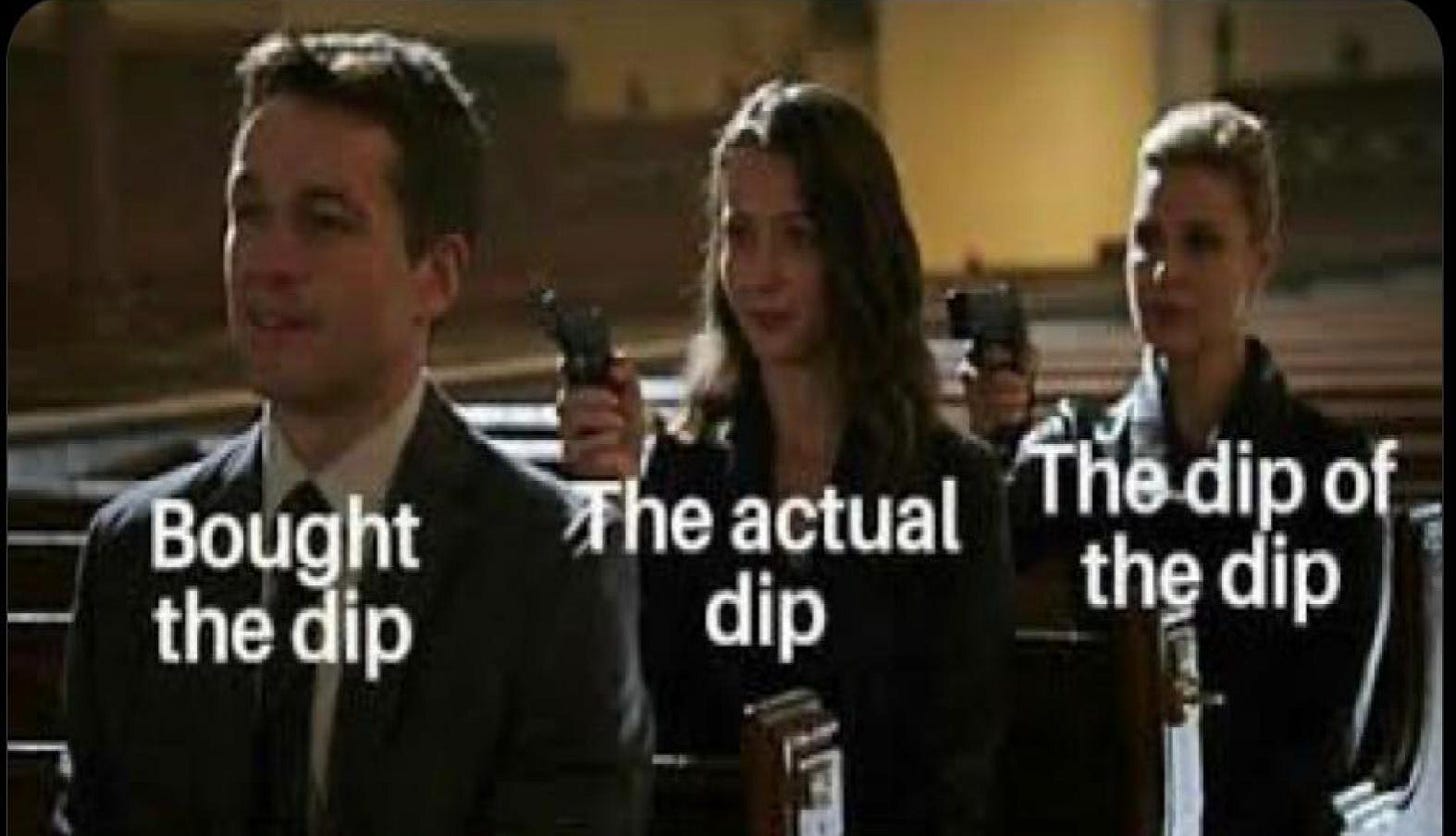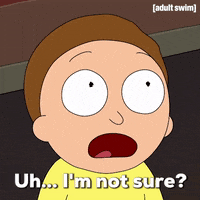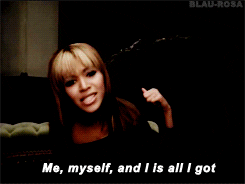Hi all,
How’s everyone doing out there?
It feels like the world is a steaming pile of garbage right now… people are trying to reinstitute laws from the 1700s, people’s rights to their physical safety are actively under siege. Things are grim. All I can do (in addition to posting about my outrage) is share information and actionable steps.
AOC’s posts on Instagram have great resources, including:
Specifically what the Democrats need to do beyond simply telling people to go out and “Vote and Donate”*
How to counter the “you’re killing babies” argument. Here’s the thing, you cannot convince someone to stop believing what they believe. Everyone is entitled to their own set of beliefs on this (religious or otherwise). But someone’s set of beliefs shouldn’t be translated into a directive forced upon all women in all cases, at the risk of maternal health (in all forms: physical, mental, identity, the basic right to govern themselves) . Also, banning abortions won’t eliminate abortions, they will eliminate safe abortions
Voting and donating are still valuable, so please do consider donating to abortion access here. The National Network of Abortion Funds’ mission is to build power with members to remove financial and logistical barriers to abortion access, and works across the country with local organizations to provide all kinds of resources to those in need of abortion support.
Ok. And that’s not all that’s stressing people out right now…
Remember not so long ago, when the market looked a bit like this:
But now it feels like this:
It’s like we went to sleep in one world, and woke up in one where the world is imploding… and it’s a little jarring.
Maybe you’re an active participant in the Great Resignation, and you left a job in the old world, and are starting a job in the new world. The things that enabled you to feel good about the choices you made previously (a buoyant stock portfolio, upside equity potential at work)… are kind of up in the air right now… stock compensation for a lot of companies is worth far less than it was a year ago. It all feels.. kind of shaky, right?
Sigh. I unfortunately, do not have a solution to any of these problems, except to offer a small bit of humour, and maybe some solace that you’re not alone. Things are uncertain, bordering on crappy, and we’re all taking stock of our choices, our positions, our plans and of course, because we are human - we’re also taking stock of our self worth and identity, because we tie it all together. Who feels like they’re crushing it right now? No one? Cool. Everyone I’ve talked to recently feels like their confidence is shaken. And so, in this week’s newsletter, we shall explore confidence.
How do we derive confidence?
In the past few years, it’s seemed like the milestones to building confidence were obvious. Join a rocketship company. Get promoted every few years. Invest in a fast growing asset class. Make a certain amount of money. In the background, most people’s choices were validated by an ever-improving market… amateurs became professionals, professionals became experts, experts became really rich.
Many of us built confidence predicated on external factors. It turns out, the type of confidence that is staked on things like expanding titles, net worth, investment portfolios and LinkedIn accolades) is extremely insecure and vulnerable1.
The alternative is Self-confidence. People who lack self-confidence rely on other people’s approval, or external validation to affirm that they’re doing well.
Self-generated confidence is particularly important in moments like this, because when shit is hitting the fan, and all the external hallmarks we’ve come to rely on to boost our confidence are going haywire.. all we’ve got is the confidence we make for ourselves.
I know what you’re thinking. “Great, so just BE more confident? On the inside?” “That is supremely unhelpful advice.” You’re not wrong. But, I’ve done some of the exploration/research for you, and I offer a few simple thoughts as a starting point:
Confidence is:
Ignited by the belief that it’s possible you’ll end up where you want to be
Built by repeatedly keeping promises to ourselves
Reinforced over time with ownership and accountability
Let’s double click:
Belief in the possibility of the outcome - don’t self-reject.

It pays to be honest about your abilities and where you’re at (which is in fact a deeply intrinsic exercise, not a comparison to where your peers are at). It’s not helpful to be farfetched in your goals (“be crypto billionaire” has paid off for exactly 0 people)… but it’s equally as important to not self-reject and (I love this phrase) “become your own bottleneck”, by limiting where you believe you can go.
Instead of focusing on how far you are from the next experience or goalpost, focus on the ways you are qualified. The worst thing that could happen is you received feedback that you’re a bit further than you need to be… then you can work on closing the gap, or choosing a new milestone that’s a little bit closer. (I wrote about rejection in a past newsletter “It’s not you, it’s your mindset?” that really underscores the concept that rejection doesn’t tell you WHO you are, (or your worth/value/identity), it simply tells you WHERE you are. Close, far, off-track, on-track.
I know it’s easy to always think we’re not adequate or worthy, especially when we’re in a growth situation. By definition, we haven’t done something before, so we lack experience. Here’s a secret: exactly zero people have perfect experience in doing something. We’re all learning, pivoting, failing and adjusting together, and the world/environment around us is also constantly changing (i.e. it is a dumpster fire right now), creating new and unique problems for us to solve…so in an existential way, we’re all new here. Yet, we can all pitch in and be valuable.
Mindy Kaling, patron saint of sassy, unabashed confidence discusses the title of her second book, “Why Not Me?” in this clip, and it one interpretation, she says it almost resentfully, of why she hadn’t coupled up, or gotten married like many of her friends at a certain age. But she also explores the term in light of watching her white, male colleagues succeed, and wondering to herself '“Why not me?”, as in - why shouldn’t she get the same opportunities and successes. We should all spend less time asking “Why would this employer/person/opportunity ever choose me?”, and instead focus on asking, “Why the f NOT me?”
Flakiness is toxic, especially to yourself
Have you noticed that lately it’s been impossible to make plans with anyone? The pandemic is (god willing) fully over, and everyone’s travel schedules and social commitments are back in full force. Everyone has tradeoffs they need to make to optimize their time, and trying to coordinate a group activity is a nightmare. Oh, and once plans are made, there’s the inevitable rescheduling, reshuffling and reprioritizing. This is especially true in busy cities, with busy people who have busy schedules.
It’s tough for me to outright eviscerate people for flaking on plans, because I’ve certainly been guilty of it… And yes, priorities change, and oh by the way, more than ever we’re grappling with mental and physical health struggles and trying to find a way to fit it all in without being overwhelmed. We all do it, but being on the receiving end of someone being real flaky kind of sucks.
When someone repeatedly flakes, or doesn’t uphold their commitment to you, over time what happens? Naturally, you start to trust them less, or find them less reliable.
The same concept applies to your relationship with yourself. I listen to podcasts from all kinds of motivational people, including someone named Ed Mylett (an entrepreneur, motivational speaker, coach to famous people and self-described as “the fastest-growing business personality in the history of social media”)… try to withhold your eyeroll and judgement for a second, because once you get through the macho platitudes, he actually has some really inspiring content, including: the ‘secret’ to building confidence is super simple: Self-confidence is building trust with yourself.
When you commit to doing something, and you follow through with it, you build a reputation with yourself, and you increasingly trust yourself. The ‘something’ you commit to doing can start off small, and maybe the end state isn’t always as originally planned, but committing and following through repeatedly is how we learn to trust ourselves - just like how we learn to trust others.
He also talks about what happens when you don’t follow through with yourself. The outcome isn’t only that you don’t hit your goal - it’s actually more damaging; you erode the trust that you have in yourself. And you can’t hide from it; if someone else flakes on you, it’s hard to know their exact motivations and maybe you forget in time, but when you flake on yourself, it kind of always sticks in your awareness.
Another no-good-very-bad outcome of eroding trust you have in yourself: when you don’t have the foundation of self-trust, the more weight you put on what others think of you - and the cycle perpetuates.
One of the most confident people I know is also someone who is relentless in keeping and enforcing commitments big and small. It’s not a coincidence that she also has more self-confidence than many people I know.
So to summarize above: first - believe you can end up where you want to be. Commit to moving towards it. (Moving, btw can be striding, stepping, baby stepping, crawling, inching… in last week’s newsletter we talked about re-scoping, keep subdividing til it feels manageable). Follow through on moving towards it. Which brings us to the final consideration of self-confidence:
Accountability: buckle up, own your choices and let the chips fall where they may
You don’t gain self-confidence by being right all the time. You simply can’t control how some (most) things turn out. You can really only control the choices you make with the information you have, and self-confidence comes from owning those choices, and their ultimate outcomes (including the negative ones). Critically, accountability also:
Teaches us to respect the process - even if the outcome falls way outside of where we intended it to be - we have learning and comfort in the fact that we controlled the process and directed the choices we ultimately made. If we put our decisions in the hands of others (our parents, our bosses, our partners), when something fails, we naturally blame them (e.g., play the victim). And even if something succeeds, we don’t feel fully responsible… it’s that shaky kind of externally-driven confidence I mentioned earlier.
Teaches us to self-advocate. When we repeatedly take responsibility for things, we start to discern clearly decisions that were firmly our choice, and also decisions that were not our choice. Being able to clearly assess this dynamic enables us to engage in rational conversation to stand up for ourselves.
“Yes I did A, but I didn’t do B, and I think this negative outcome is a result of both A and B, how can we resolve both missteps?” is a more confident approach when in conflict than “Things are all messed up, I’m not good at this” (taking on all the responsibility), or “This person messed things up for me.” (taking on none of the responsibility.
That’s it for this week! Next newsletter, more on confidence, being overconfident, and the difference in confidence in who we are, vs confidence in what we do.
Have a great long weekend all! To those in the US, happy independence day, to those in Canada, happy co-dependence day!
Resources/Links
I loved this resource: How Accountability Builds Self Esteem (Healthy Place)
An episode of Ed Mylett’s podcast “How to Build Confidence and Self-Belief”
Best croissants in the US (because I can’t stop looking at that croissant gif now) Can vouch for Tartine in SF and the Pretzel Croissant at City Bakery in NYC.. want to try Neighbours in SF (Food and Wine)
Cool Ladies Doing Cool Things: you know what? This week I’m just going to put the link to donate to abortion access again, so that all cool ladies can continue to make choices to enable themselves to do cool things.
https://onlinelibrary.wiley.com/doi/10.1002/mar.21009







